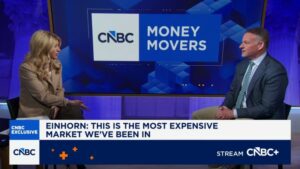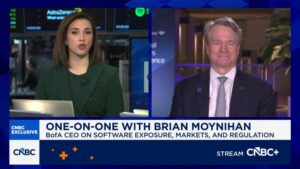Getting a DUI makes it harder to find car insurance and raises your rates by 96% on average, according to a NerdWallet analysis. Although finding cheap auto insurance after a DUI may seem impossible, shopping around is the trick.
Progressive is the cheapest car insurance company on average if you’ve had a recent DUI, out of the nation’s largest insurers, according to NerdWallet’s analysis of third-party rate data.
This analysis is for full coverage insurance, which includes comprehensive and collision insurance. Often required if you have a car loan or lease, comprehensive and collision insurance pay for damage to your own car from most causes. Although USAA has cheaper average rates than Progressive, it isn’t included in our analysis because it is available to members of the military, veterans and their families only.
But averages aren’t always a good predictor of the price you’ll pay: Your rates are determined by individual factors like your age and location, and smaller regional insurers might offer better rates than more well-known companies. Getting cheap DUI insurance will take diligence, but comparing quotes can help.
Nerdy tip: Even if your DUI was the result of a mistake that will never happen again, insurers will consider you “high-risk,” or more likely to file an insurance claim than most people, for several years. High-risk drivers have a harder time finding insurance, and may need to get coverage from a specialty insurer.
Cheapest car insurance companies after a DUI
To find the lowest prices for drivers with a recent DUI, we looked at large companies that are available in many states and can serve the most consumers.
Here are average monthly rates from the nation’s four largest auto insurance companies for drivers with a recent DUI, ranked from cheapest to most expensive.
But big companies aren’t your only options.
In many areas, smaller statewide and regional insurers have the cheapest rates. Our analysis found that in 34 states and Washington, D.C., the lowest rates for a driver with a DUI come from an insurer that doesn’t make the list of the nation’s 10 largest auto insurance companies. So after a DUI, it’s vital to compare car insurance rates and find the cheapest company for you.
Cheapest DUI car insurance in your state
The cheapest car insurance company in one area may not be the cheapest in another. For instance, in NerdWallet’s analysis:
-
Geico was the cheapest insurer for drivers with a DUI in Florida, Maryland and Utah — but the most expensive option in North Carolina and North Dakota.
-
Farm bureaus: Missouri and North Carolina drivers can find the cheapest insurance on average at their respective state’s farm bureaus, but Texas Farm Bureau was the costliest option in Texas.
-
Travelers was the cheapest for drivers with a DUI in Delaware, but the most expensive in Massachusetts.
In a majority of states, the least expensive insurer for a driver with a clean record isn’t the cheapest after a DUI. In Arizona, for example, Geico was the cheapest for a driver with no violations but the second most expensive company after a DUI, with prices more than five times as much as before.
Check the table below to see which companies have the lowest rates after a DUI where you live.
|
Cheapest company |
Full coverage with one DUI |
|
|---|---|---|
|
Hallmark Insurance |
||
|
ACCC Insurance |
||
|
Western National |
||
|
Vermont Mutual |
||
|
Western National |
||
|
Farmers Mutual of Nebraska |
||
|
Penn National |
||
|
Concord Group |
||
|
Oregon Mutual |
||
|
*USAA was not included in our analysis because it is available only to military, veterans and their families. |
||
How much does car insurance go up after a DUI?
You’re unlikely to escape a rate hike for car insurance after a DUI even with minimal coverage, which is typically a third of the price of full coverage. Average rates for both types go up 96% or more after a DUI.
While buying only the minimum required insurance coverage in your state is one way to keep rates low after a DUI, it’s not an option for everyone. Auto loans and leases typically require full coverage.
Additionally, minimum coverage insurance often has relatively low liability limits. If you cause a crash and don’t have enough insurance to pay for damage, you’ll have to pay out of pocket.
-
Full coverage car insurance for a driver with one DUI costs about $260 a month, on average. That’s almost $127 more a month than a driver with no violations would pay.
-
For a driver with one DUI, minimum required car insurance costs $96 a month, on average — $49 a month more than someone with a clean driving history would pay.
But where you live makes a big difference in those rates.
-
Average rates in Maine, Oklahoma and Washington, D.C., increase by less than 60% after a DUI for drivers with minimum coverage.
-
But in 16 states, average rates more than double after a DUI for drivers carrying minimum coverage. Drivers in California, Hawaii and Michigan could pay 150% or more after a DUI.
-
In Alaska, Florida, Mississippi and Oklahoma, rates go up less than 50% on average after a DUI for drivers with full coverage.
-
Average rates more than double after a DUI for drivers with full coverage in 11 states, with carriers in California, Hawaii and Michigan charging over 165% more on average.
So what does it mean in terms of dollars and cents? Depending on the state and coverage level, drivers with a recent DUI could pay as little as $195 more per year for car insurance, or as much as $4,165, according to our analysis.
Keep in mind that the company you choose will also affect your rates, and the cheapest company without any traffic infractions isn’t always the same after a DUI. While Geico had the cheapest rates on average for a good driver out of the country’s four largest insurers, it was the second-most expensive after a DUI.
|
Full coverage, good driver |
Full coverage, one DUI |
Annual difference |
|
|---|---|---|---|
|
Progressive |
|||
|
State Farm |
How to shop for affordable auto insurance after a DUI
After a DUI, your car insurance company considers you a high-risk driver. Your premium will almost certainly increase, and your carrier might even decide to drop you. Here’s what you can do:
-
Start your car insurance search quickly. The threat that your policy might be canceled means you should start getting auto insurance quotes immediately after a DUI. This gives you time to compare rates.
-
Disclose your DUI status when you shop around. An insurer might not be aware of your recent DUI if you compare quotes right away. To get the most accurate rate, you’ll need to share any recent traffic infractions, including DUIs.
-
Use comparison tools. Factors such as where you live, your age and your credit score will affect your premium. NerdWallet’s car insurance comparison tool can help you weigh your options.
-
Get multiple quotes. Companies vary greatly in how they price policies. The only way to find the cheapest rate is to get car insurance quotes from several competitors.
-
Shop again three and five years later. Rates after a DUI tend to drop after these milestones, and other insurance companies might be cheaper than yours at those points.
-
Avoid any other traffic violations. Although you have a DUI, it won’t affect your insurance rates forever. Avoid any other DUIs, accidents or speeding tickets to keep your car insurance bill down now and in the future.
-
Consider non-owner car insurance. If you don’t own a car and occasionally drive someone else’s vehicle, you can get non-owner car insurance and still meet your state’s liability insurance requirements. Liability insurance pays for damage you cause to another person (or their car) in an at-fault accident.
Alternative car insurance after a DUI
Some companies may deny coverage to drivers they consider too risky, including those with a DUI.
Many big insurance companies serve high-risk drivers, and some smaller companies cater specifically to this market. After a DUI, it’s a good idea to get rates from these nonstandard carriers as well as from the big ones, if possible.
If you can’t find a company willing to insure you because of your driving record, you can turn to your state’s high-risk insurance pool. These programs exist to provide coverage to people who have trouble buying auto insurance through normal channels. To start, find your state in the directory of the Automobile Insurance Plan Service Office.
DUI car insurance frequently asked questions
How long does a DUI stay on your insurance?
A DUI will affect your car insurance rates for at least three to five years, often longer. Companies and states differ in how long and how much they raise your rates for a DUI. In California, for instance, a DUI stays on your record for 10 years. During that time, you won’t be able to earn a good driver discount.
Drivers with a recent DUI are typically considered high-risk drivers, so you may need to buy coverage from a nonstandard insurer.
Do you need an SR-22 as proof of insurance after a DUI?
In many states, your insurer will have to file a form with the state’s motor vehicle department proving you have car insurance after your DUI.
In most states, the form is called an SR-22, and it proves you have purchased at least your state’s minimum required auto insurance. An FR-44 is a similar form, found in Florida and Virginia. If you’re ordered to file this form, you must purchase more than the state minimum. Not all insurers will file these forms for all customers, so you’ll need to find an insurance company that provides this service.
How much does car insurance increase after a DUI?
For drivers with full coverage, your auto insurance rates go up about 96% on average if you have a DUI. Rates increase even more after a DUI if you have minimum insurance — around 104% on average.
How much does DUI insurance cost?
For a 40-year-old driver with no previous violations, the average annual cost of car insurance after a DUI is:
-
$3,114 for full coverage, an increase of $1,522.
-
$1,152 for minimum required coverage, an increase of $587.
For comparison, the average cost of car insurance for a driver with a clean record is $1,592 per year for full coverage and $565 for minimum coverage.
This post was originally published on Nerd Wallet







